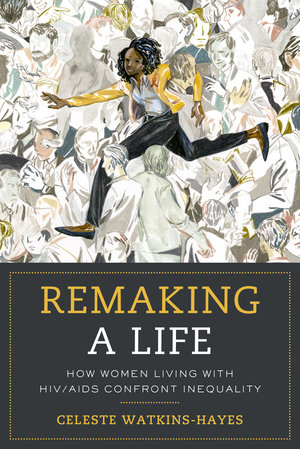In the midst of the medical, economic, and psychological fight against COVID-19, it is prudent to examine past outbreaks of disease in order to gain a greater understanding of what may lie ahead.
The most immediate parallels to the COVID-19 pandemic include other outbreaks of novel coronaviruses, namely the Influenza Pandemic of 1918 and the Swine Flu Pandemic of 2009, but these are by no means the only points of reference worth reviewing.
In the 1980s and ’90s, HIV and AIDS reaped swaths of life across the globe, and the disease and our response to it bear striking resemblances to COVID-19.
Both diseases can be transmitted unwittingly by asymptomatic carriers, have experienced lackluster government responses, have affected minority communities particularly harshly, and the confrontation of both diseases has involved some of the same public health officials and experts.
Anthony Fauci, Director of the National Institute of Allergy and Infectious Diseases, was among the first public health experts in America to dedicate resources to studying HIV and AIDS, and he persuaded Congress to markedly increase public health funding in response to the disease—no small feats in an administration that ignored the outbreak and neglected the needs of the LGBTQ community. Fauci has today become a household name for his role as the top public health official responding to COVID-19.
There is another high-ranking public official that has a history with both HIV and COVID-19: Vice President Mike Pence. Conversely to Fauci, Pence delayed action to treat an HIV outbreak while governor of Indiana and actively undermined his own public health policies meant to curb the epidemic.
Much as the Reagan administration disregarded the LGBTQ community during the AIDS epidemic, Pence has been placed in nominal charge of the COVID-19 response as it becomes increasingly clear that the virus affects black communities much more lethally than others. Combined with the Trump administration’s renewed efforts to scapegoat immigrants for the virus’s spread, it becomes clear that the federal response to COVID-19 stands in the shadow of AIDS.
This is not to say that the examination merely results in grim auguries for the road ahead. Communities came together in collective action and care during the AIDS epidemic, bringing about greater public health awareness and education, and new social norms intended to foster community resiliency.
COVID-19 stands poised to catalyze the same collective reaction, and in the spirit of this perseverance and public health education, UC Press invites our community of readers to learn more about HIV and AIDS with these gathered titles. Many more can be found by browsing our website.
After Silence
A History of AIDS through Its Images
by Avram Finkelstein
“After the Holocaust, it was said for a time writers couldn’t and didn’t write. We, survivors/artists of the late-1980s and early-1990s AIDS era, have found our voices again. Avram Finkelstein has written an important, one-of-a-kind book about the history of AIDS through its images that the world needs and has waited for. It is a triumph.”
—Pamela Sneed, poet, author, performer, and Visiting Professor at Columbia University
AIDS and Masculinity in the African City
Privilege, Inequality, and Modern Manhood
by Robert Wyrod
“Provides an astute and ethnographically rich account of how the AIDS epidemic has shaped gender and sexuality in Uganda. Wyrod is empathetic without being overly sentimental, critical without being judgmental, and reflexive without resorting to navel-gazing.”
—Daniel Jordan Smith, author of AIDS Doesn’t Show Its Face: Inequality, Morality, and Social Change in Nigeria
The Gentrification of the Mind
Witness to a Lost Imagination
by Sarah Schulman
“Schulman is brilliant at conveying how devastating and surreal it was to live during the AIDS crisis. . . . [the book is] teeming with ideas, necessary commentary, refreshing connections and examination of the status quo.”
—Lambda Literary
Eating Spring Rice
The Cultural Politics of AIDS in Southwest China
by Sandra Teresa Hyde
“This book is a fabulous read—ethnographically rich, theoretically engaged, and emotionally and intellectually captivating. The first major ethnographic study of its kind, the text is very clearly written and accessible. Hyde does a majestic job of drawing the reader into the places and practices described, bringing to stunning life the politics of AIDS on a border region.”
—Ralph Litzinger, author of Other Chinas: The Yao and the Politics of National Belonging
Remaking a Life
How Women Living with HIV/AIDS Confront Inequality
by Celeste Watkins-Hayes
“A brilliant book on political and personal transformation. For anyone interested in how activism and advocacy work to challenge inequality and transform state policy, while also remaking lives in local communities across the country, this book is a must read.”
—Cathy J. Cohen, author of Boundaries of Blackness: AIDS and the Breakdown of Black Politics
AIDS and Accusation
Haiti and the Geography of Blame
by Paul Farmer
“This superbly crafted volume is dedicated to explaining and refuting a popular U.S. belief that AIDS came to the United States from Haiti. . . . Farmer has made an outstanding scholarly contribution to the ‘anthropology of suffering,’ the assessment of illness as perceived and experienced by a patient embedded in an interlocking fabric of culture and history.”
—Medical Anthropology Quarterly
Punishing Disease
HIV and the Criminalization of Sickness
by Trevor Hoppe
“Punishing Disease [is] engagingly written and accessible to non-scientific and non-academic audiences [and] impressively deploys the tools of sociology, criminology, and epidemiology to help us understand the baleful consequences of reacting to a public health emergency with punishment instead of compassion.”
—Undark






